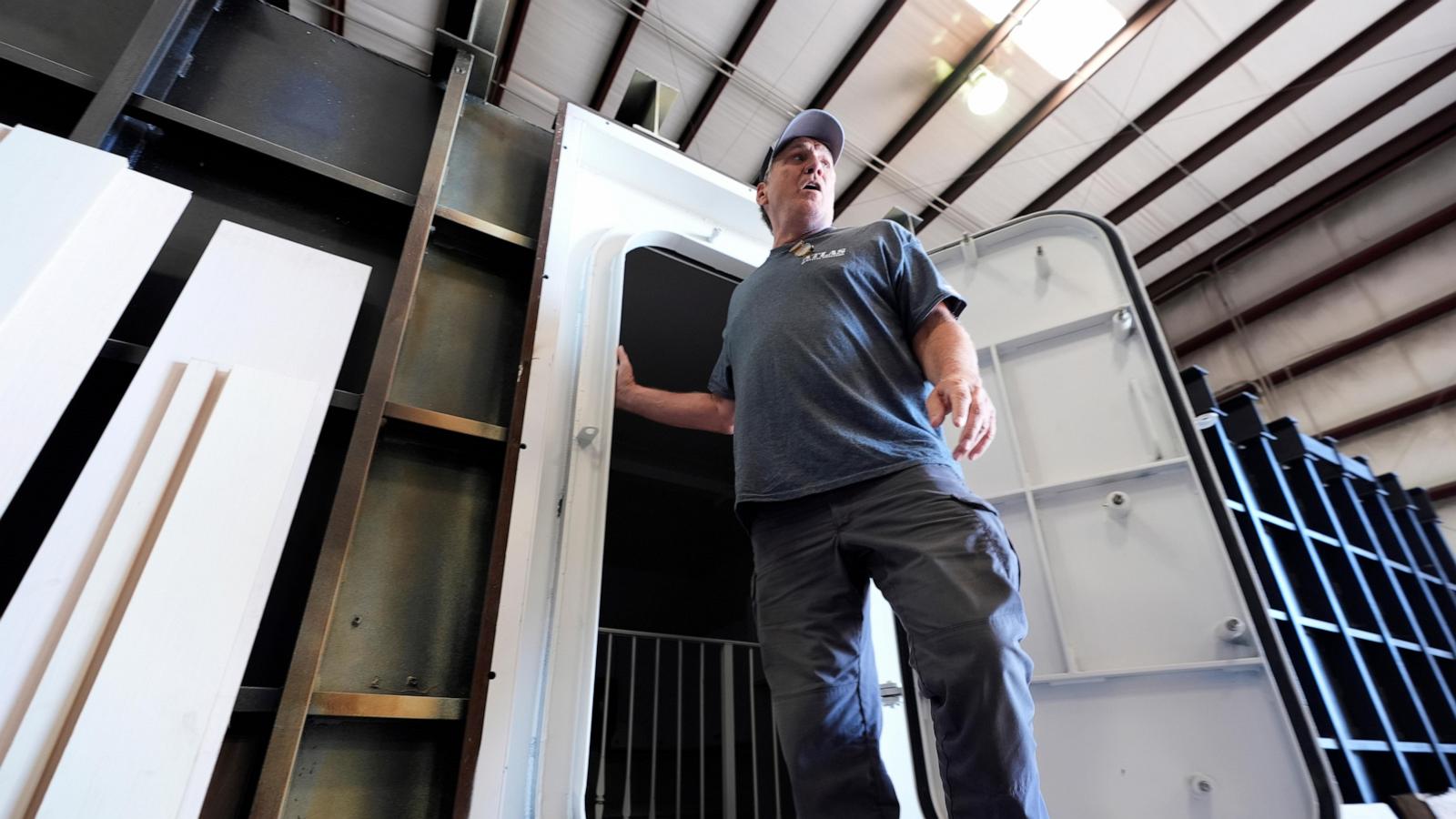Is a Private Bunker Your Best Defense Against a Nuclear Apocalypse? The Latest Trend in Home Security
Are you worried about nuclear war? Doomsday preppers are scooping up underground bunkers at a record rate! Discover why these 'ultimate safe rooms' are selling like hotcakes and what the experts really think about them. From the luxury of personal nuclear fallout shelters to the practicalities of government advice, let's delve into the intriguing world of private bunkers.
The Rise of the Modern-Day Bunker: A Multi-Million Dollar Market
With global tensions escalating and worries about nuclear war intensifying, the demand for personal bunkers and fallout shelters has seen a dramatic surge. What started as an idea predominantly confined to the minds of avid survivalists and extreme preppers, the personal home bunker, is gaining significant attention from high-net worth families and high-profile individuals as part of their general preparedness plans. Businesses such as Atlas Survival Shelters, the world's largest bunker manufacturer located in Sulphur Springs, Texas, reports unprecedented sales growth, attributed primarily to recent international events. With bunkers ranging from $20,000 to several million dollars, many buyers view the investment not as a luxury, but as a necessity for family protection and safety. COVID-19 lockdowns, Russia's invasion of Ukraine, and the outbreak of the Israel-Hamas war, according to one bunker company CEO, have only added fuel to this unprecedented consumer demand. While a standard doomsday bunker may not be most people's first line of thought, more and more homeowners see it as another addition in their comprehensive home safety plan, especially after experiencing various crisis and uncertainty scenarios.
What's Inside a Luxury Bunker?
Forget cramped, metal boxes. High-end bunkers are now luxurious, high-tech retreats equipped to survive prolonged crises, equipped for extended stays for dozens of occupants. These aren't your grandfather's fallout shelters; many offer comfort and amenities you might find in an upmarket hotel, complete with several beds, fully functional kitchens, and even home theatres. Such amenities will no doubt enhance occupant comfort while confined to such close quarters. The advanced technology is what separates these luxurious models from your regular old nuclear bomb shelters. The high-tech design incorporates water, electricity, and clean air provisions and can potentially provide self-sufficient systems to sustain many people.
What Do the Experts Say About Nuclear War Survival?
While the bunker market booms, government agencies like FEMA offer a more cautious approach to nuclear preparedness. FEMA's focus remains on having the public get to a basement or safe building to get out of the path of incoming fallout. The advice from specialists working for organizations like Lawrence Livermore National Laboratory remains consistent: after a nuclear attack, getting inside, far from the particle fallout, is crucial. This would imply bunkers or prepared underground locations, such as a basement, will be of paramount importance for safety during these events. While surviving a nuclear blast may not be the first or only solution many may look at, many may agree the bunker presents a better option.
The Critics' View: Bunkers vs. Nuclear Disarmament
Not everyone is thrilled about the bunker boom. Critics argue that the focus on individual survival undermines the greater goal of nuclear non-proliferation. This argument highlights the underlying problem of shifting the population's attention from tackling the root causes to focusing on self-preservation, thus not addressing the need to prevent further weapons proliferation. Nonproliferation experts assert that bunkers create a false sense of security, suggesting survival is feasible after a nuclear conflict, which distracts from the effort of achieving the elimination of nuclear weapons altogether.
Take Away Points
- The market for private bunkers is booming, driven by rising geopolitical tensions.
- High-end bunkers offer luxurious amenities, self-sufficiency, and protection from various disasters.
- Government agencies emphasize sheltering in place as the primary survival method after a nuclear attack, which highlights the significant differences in approach and ideology.
- Critics argue that the focus on private bunkers distracts from the more urgent need for nuclear disarmament. Overall, the decision of acquiring a private bunker will boil down to the personal circumstances, ideologies and world views of prospective buyers, as there are strong arguments both for and against owning a private bunker.









